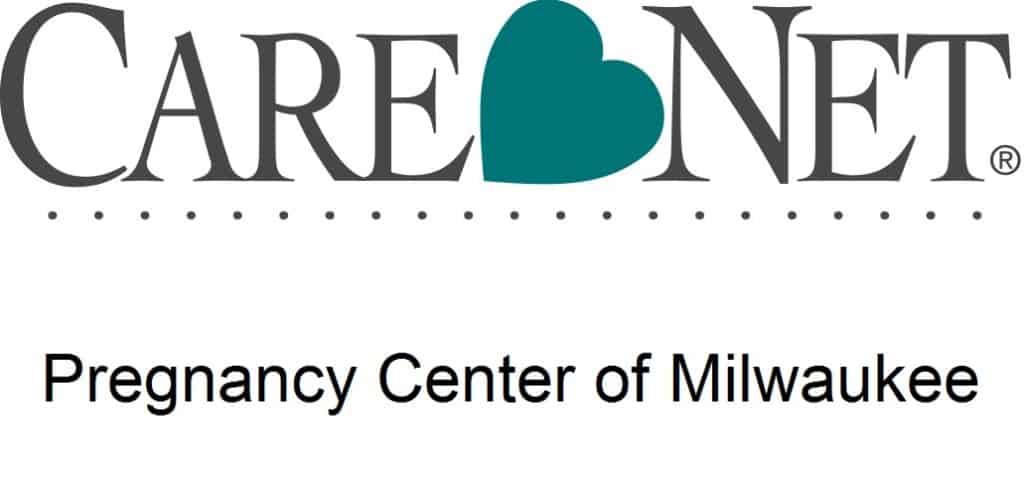Getting a positive pregnancy test can bring a whole host of emotions! At Care Net Pregnancy Center of Milwaukee, we offer free pregnancy tests and confidential counseling to help you through this time of uncertainty. Our trained patient advocates as well as medical professionals help provide compassionate, pressure-free and discreet care in a welcoming environment.
The first step, if you think you might be pregnant, should be to take a pregnancy test. While some pregnancy tests offer early detection, the most accurate pregnancy test results will occur after you have a missed period. If you take a urine test before a missed period, you may get a false negative. For this reason, it is important to wait to take a test until after you miss a period. In addition to a positive test, there are other signs that you may be pregnant.
Some women experience pregnancy symptoms even before they take a test. Tender or swollen breasts are one of the earliest symptoms. When pregnant, your body prepares your breasts for lactation. In early pregnancy, the milk ducts stretch as they begin to fill with milk. Blood flow to the area increases and your breasts grow bigger. Your nipples may be particularly sensitive during early pregnancy and many women note sore nipples as one of their earliest signs of pregnancy. Areolas (the circles around your nipples) can get darker and increase in size. You may also notice tiny bumps increasing in number and size on your areola. These bumps are called Montgomery’s tubercles. They are there to produce oils to lubricate your nipples during breastfeeding. Some women have sore breasts and/or nipples for the duration of their pregnancy and other women experience relief from this tenderness once hormone levels begin to go down in the second trimester.
Probably the most common early symptom of pregnancy is nausea, or what is often called, ‘morning sickness’. Although the exact causes of nausea are unknown, experts say that morning sickness is primarily due to the sudden, drastic increase in hormones that are surging through a woman’s body. The ways in which morning sickness affects women can vary dramatically from one woman to another. Morning sickness, however, does often follow a similar daily pattern, and the counselors here at Care Net Milwaukee can help you evaluate and make a plan to manage your nausea. Practices such as sufficient hydration, early medical attention, proper nutrition, and several other factors can help keep nausea manageable.

Frequent urination is another common early symptom of pregnancy. With the hormone surge in progesterone and HCG, kidneys expand and produce excess urine, which rids the body of extra waste more rapidly. As the uterus and fetus continue to grow and put pressure on the bladder, frequency in urination can reappear later in the pregnancy. If any pain accompanies urination, however, a woman should see a doctor or health care professional immediately as this could be a sign of a urinary tract infection (UTI). Other indicators of a UTI are lower abdominal pain, foul-smelling urine, a cloudy color to the urine, or blood in the urine. A UTI can create dangerous complications for the pregnancy if left untreated.
Extreme tiredness is another pregnancy symptom. Again, an increase in hormones plays a significant role. In order to supply the placenta and fetal circulation with sufficient blood supply, your blood volume increases drastically, making your heart pump faster and stronger and leaving you more exhausted than usual. At the same time, your blood pressure and blood sugar levels decrease, often leading to fatigue. The increased levels of exhaustion leave many women needing to take a nap during the day.
Constipation is yet another pregnancy symptom, although not usually experienced until the third trimester when there is the most pressure on the bowel. Increased levels of progesterone can cause your gut to work less efficiently and thus food moves more slowly through one’s intestines. Slower moving intestines means slower digestion and thus constipation can result. This process is commonly known as reduced gastric motility. Constipation can also be the result of the iron most women get from their prenatal vitamin. Too much iron can make it difficult for bacteria in the bowel to break down food. Drinking enough water to soften one’s stool can also help with constipation.
As your body produces more progesterone to support the pregnancy, this hormone relaxes many of the muscles in the body, including the intestinal region . Another symptom of the slowdown in one’s intestines is a build up of gas. This increased level of gas in your body can cause increased bloating, flatulence, and burping. After the first trimester, the uterus expands and begins to crowd the abdominal cavity, which puts pressure on the stomach and makes the pregnant woman feel even more bloated. Unlike some of the other symptoms, increased levels of gas can be somewhat controlled by avoiding foods like cabbage, cauliflower beans, whole grains, brussel sprouts, and asparagus. These foods all contain the sugar raffinose, which makes many people gassy. Other foods to be avoided if bloating or gas is a problem include wheat, corn, fructose, and most dairy products.
If you find yourself experiencing any of the above symptoms, and think you might be pregnant, the professionals at Care Net Pregnancy Center of Milwaukee are here to support you. We offer free and confidential, lab-quality pregnancy testing as well as a free ultrasound to confirm pregnancy and viability. And no insurance is necessary.
Our trained medical professionals and patient advocates can help to educate you on ways to be as comfortable as possible during your pregnancy as well as help you learn to manage many of your pregnancy symptoms. Although this can be a challenging time, we are here to help! Call or visit us today!

